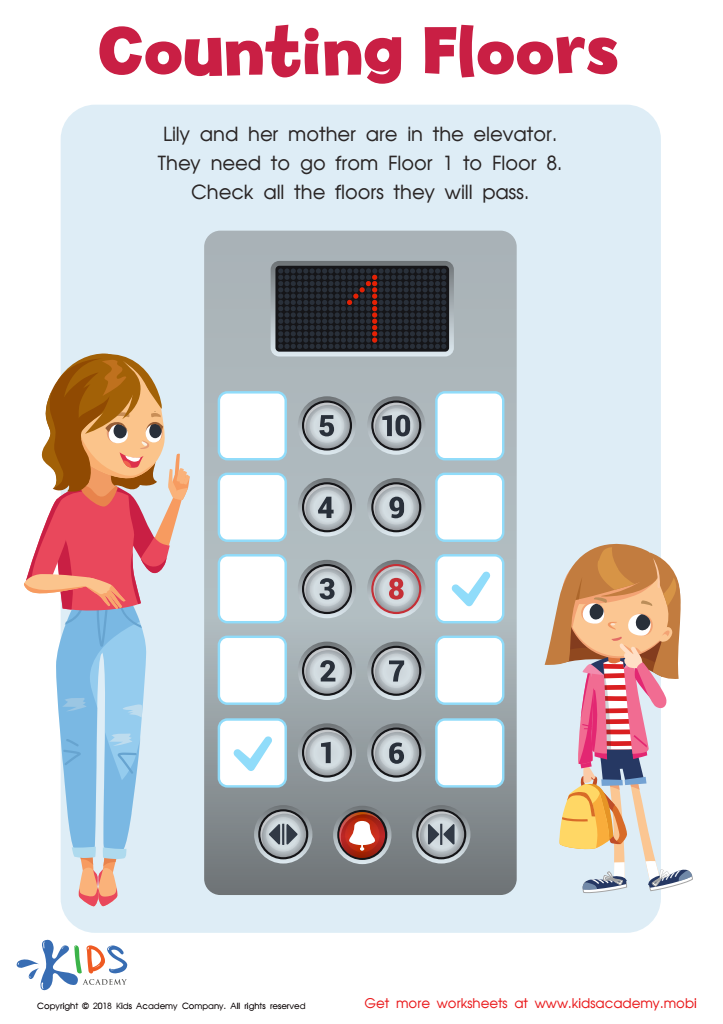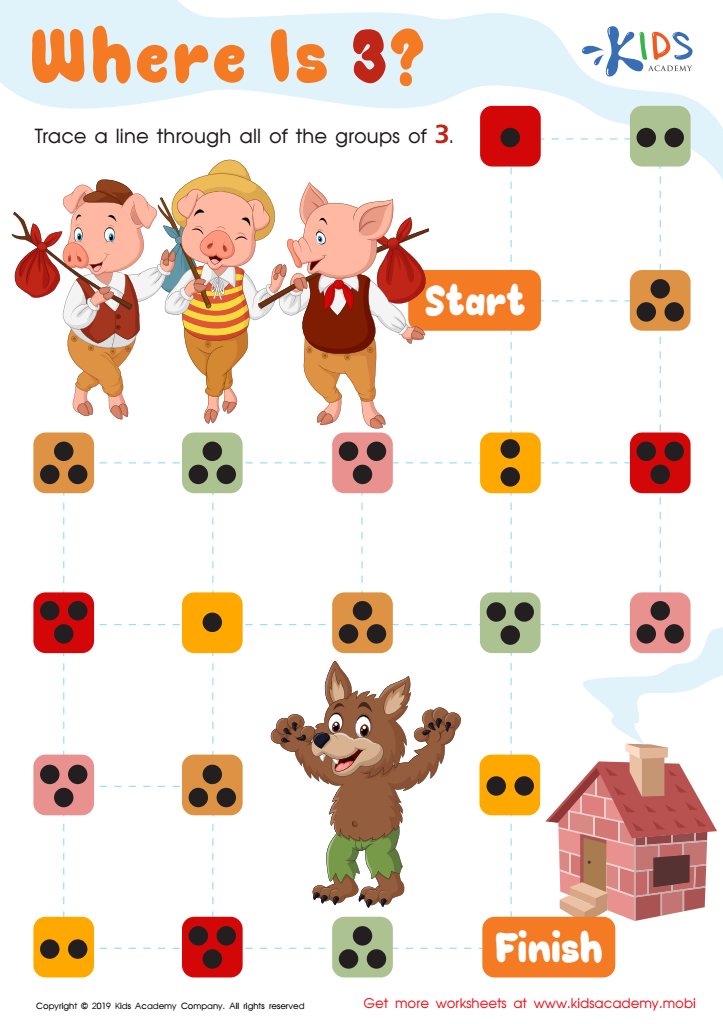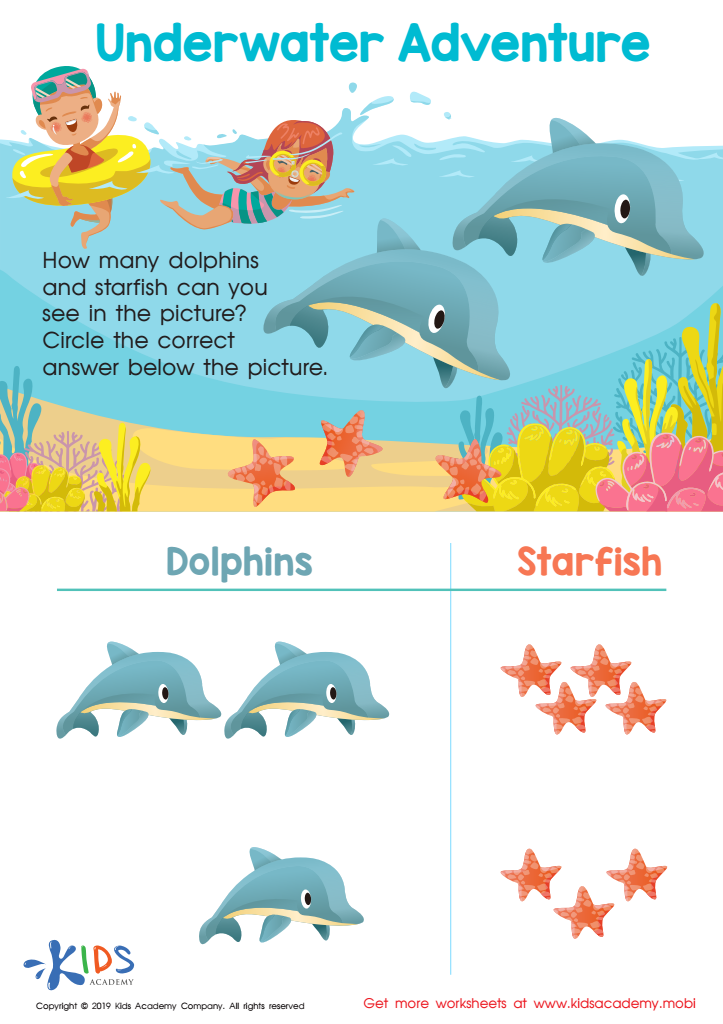Spatial awareness Numbers 0–10 Worksheets for Ages 4-6
3 filtered results
-
From - To
Enhance your child's early math skills with our "Spatial Awareness Numbers 0–10 Worksheets for Ages 4-6." Crafted to promote numerical understanding and spatial reasoning, these engaging worksheets make learning numbers fun and interactive. Perfect for young learners, the activities include colorful illustrations and exercises that help children recognize, count, and place numbers in various contexts. Whether it's arranging numbers in order or identifying patterns, these worksheets offer a comprehensive approach to foundational math concepts. Ideal for at-home practice or classroom use, they foster critical thinking and problem-solving skills in a playful and educational manner.


Counting Floors Worksheet


Where Is 3? Worksheet


Underwater Adventure Worksheet
Spatial awareness and understanding numbers 0-10 are foundational skills for children ages 4-6, critical for their cognitive and academic development. Spatial awareness allows children to comprehend the position, area, and relationship of objects. This skill is crucial not just for everyday tasks like navigating space and understanding directions but also for academic subjects such as geometry, art, and even handwriting.
Introducing numbers 0-10 during these formative years lays the groundwork for numeracy. Before they can perform complex mathematical operations, children need to understand basic concepts of quantity, order, and value. Numbers 0-10 are the building blocks for future math learning, helping children to recognize patterns, compare quantities, and develop problem-solving strategies.
Both spatial awareness and number recognition enhance logical thinking and cognitive flexibility. Activities that boost these skills also promote fine motor abilities, social interaction, and language development. For example, counting objects helps children link numerals with physical quantities, while spatial games improve their ability to visualize and describe their surroundings.
Parents and teachers’ active involvement in fostering these skills ensures that children gain a solid foundation. This preparation not only supports future academic success but also contributes to a well-rounded, problem-solving mindset advantageous in everyday life. Emphasizing spatial and numerical concepts in early childhood can make learning both fun and meaningful.

 Assign to My Students
Assign to My Students
















